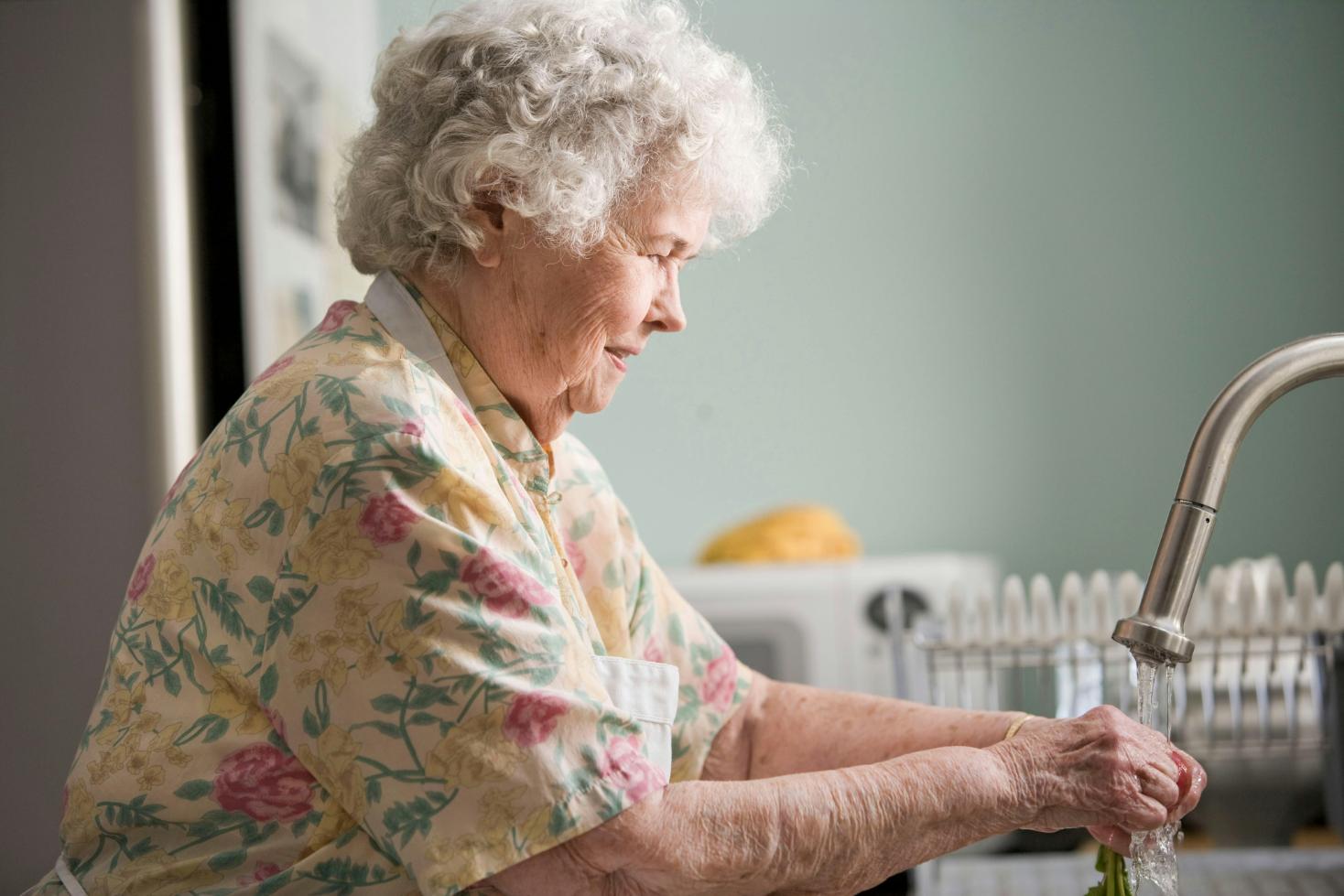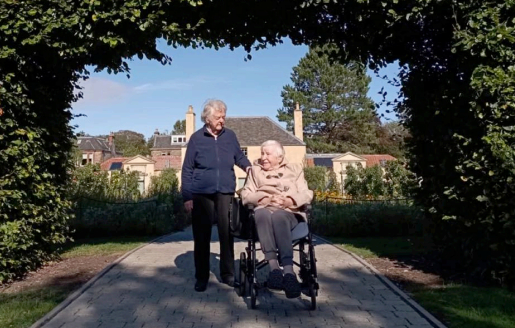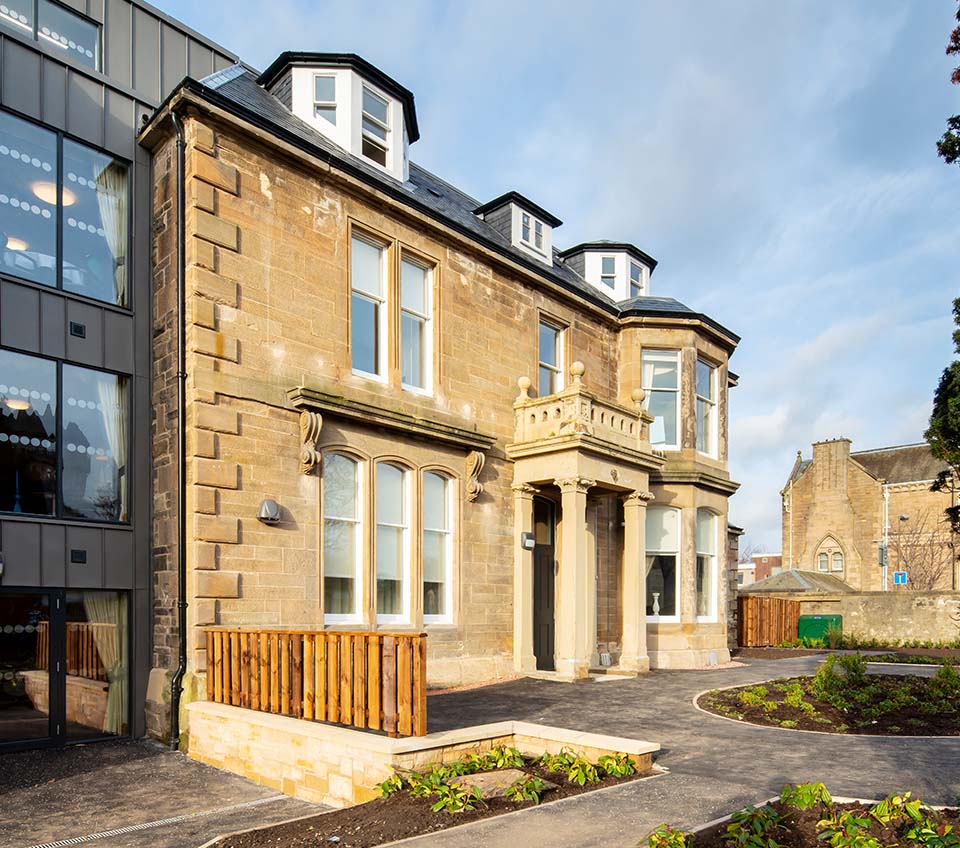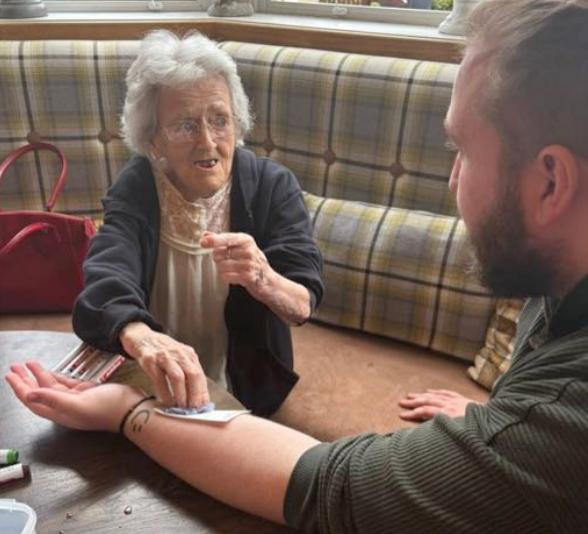What Is Residential Care? A Simple Guide for Families in Edinburgh

For many families, there comes a point where an older loved one needs more support than can realistically be managed at home. This can feel like a difficult stage and often comes with a lot of questions. If you are beginning to look into care options in Edinburgh, understanding what residential care actually involves is a great first step.
Residential care is designed to help people live comfortably, safely and with dignity, even when day-to-day tasks start to feel challenging. It is not a medical environment like a hospital, and it is not as intensive as nursing care. Instead, it offers a consistent level of personal support, companionship and reassurance, all delivered in a homely setting where residents can feel at ease.
What Does Residential Care Mean?
Residential care is a type of long-term support for older adults who do not require round-the-clock nursing but do need regular help with everyday activities. This often includes washing, dressing, taking medication, mobility support and general supervision. For some, it may also provide the social interaction they have been missing at home.
At Trinity House Care Home in Edinburgh, the focus is on making life easier while still encouraging independence wherever possible. The goal is to take pressure away from residents so that they can spend more time doing the things they enjoy and less time worrying about chores, safety or isolation.
A Home That Feels Like Home
A common misconception is that residential care feels clinical or institutional. Modern care homes are the opposite. They aim to create a warm, welcoming environment that feels personal and familiar. Residents usually have their own private bedroom, decorated with their belongings, photos and treasured items. This helps them feel settled from the moment they arrive.
Communal lounges, dining rooms and landscaped gardens offer plenty of space for socialising or relaxing quietly. Families can visit freely, and residents are encouraged to maintain their routines and preferences. It is not about taking away independence. It is about adding comfort, structure and support.

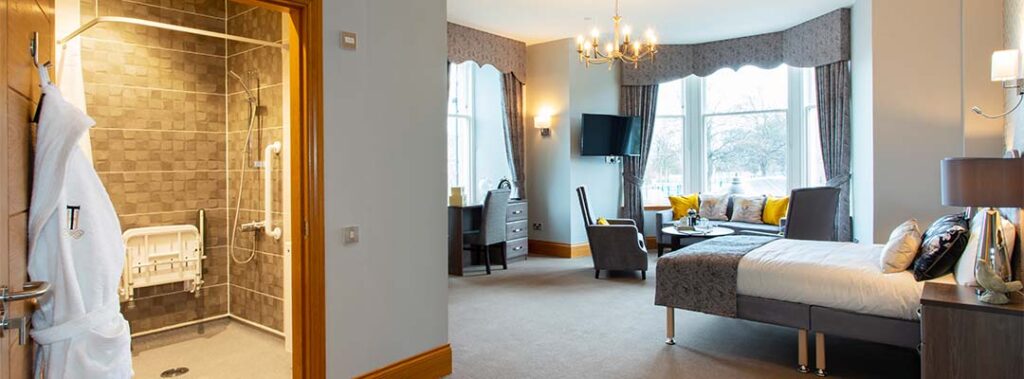
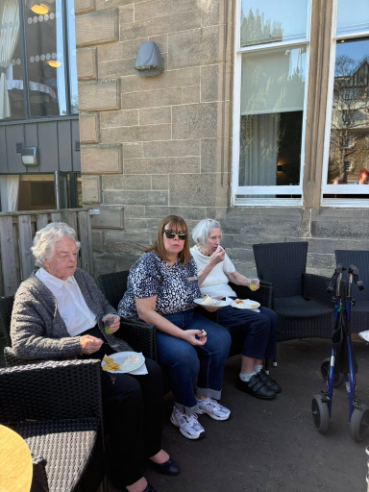
Day to Day Life in a Residential Care Setting
Life in a residential care home is shaped by routine, companionship and a sense of community. Every day looks a little different, but generally includes a mix of nutritious meals, friendly conversation, gentle activities and opportunities to relax.
Activities often play a big part in creating a positive atmosphere. While each home offers something slightly different, many include things like music sessions, gentle exercise, crafts, games, garden time and visits from local entertainers or groups. These activities help keep residents engaged, mentally stimulated and socially connected.
At Trinity House, the team ensures that every resident can take part in activities that suit their interests and abilities. Whether someone prefers quiet reading in a sunny lounge or a more lively group activity, there is always something to enjoy.
Personal Support Tailored to Each Individual
A key part of residential care is the personalised support that residents receive. Before someone moves in, a full assessment is carried out so that the care team can understand their needs, routines, preferences and quirks. This information forms the basis of a detailed care plan.
Support might include:
- Help with personal care
- Assistance with dressing and grooming
- Medication reminders
- Mobility support
- Emotional reassurance
- Encouragement with meals and hydration
These plans are reviewed regularly because needs can change over time. Families are kept involved, and conversations are open and honest. If additional support becomes necessary, residential care can transition smoothly into nursing or dementia care without the stress of moving to a completely different home.
How Residential Care Differs from Nursing Care
Residential care and nursing care are sometimes confused, so it is useful to understand the distinction. Residential care focuses on personal support and day to day assistance. Nursing care is more suitable for people with complex medical requirements who need the expertise of qualified nurses.
If your loved one struggles with everyday tasks but does not have a condition requiring clinical oversight, residential care is likely the more appropriate and comfortable option.


The Benefits of Residential Care for Families
Choosing residential care is rarely an easy decision, but the benefits can be significant. Families often describe a sense of relief when they know their loved one is safe, supported and not alone. It removes the pressure of constant worry and allows family members to switch roles from carers back to loved ones, which can be a meaningful change.
Many residents feel a renewed sense of purpose once they settle in, particularly when they enjoy regular social interaction and activities. Loneliness is a huge issue for many older adults and residential care provides structure, company and a predictable routine, all of which contribute to better well-being.
What Services Do Residential Care Homes Provide?
Although each home is different, most residential care settings offer a combination of the following:
- Personal care support
- Medication management
- Housekeeping and laundry
- Home cooked meals and nutritional support
- Activities, events and entertainment
- On site facilities such as gardens, lounges or a salon
- 24 hour staff presence
- Support with mobility and safety
Some homes, including Trinity House, also offer additional services such as respite care and access to specialist care pathways if needed in the future.
Funding Residential Care
Funding can feel overwhelming at first, but there are options available. Costs vary depending on location and the level of support required. Some people receive financial help from their local authority following an assessment, while others fund their care privately.
It is always worth speaking to the care home team for guidance. They can help families understand what is included in the weekly fee and point them towards local organisations that can offer further advice.
Choosing the Right Residential Care Home
Finding the right care home involves more than just checking facilities. It is about atmosphere, kindness and trust. When visiting a home, look for warm interactions between staff and residents, genuine smiles and a relaxed atmosphere. Take note of the cleanliness, the food, the activities and the general feeling you get when you walk through the door.
Reading the latest Care Inspectorate report is also helpful because it gives an independent overview of quality and safety. Above all, trust your instincts. Families usually know when a home feels right.
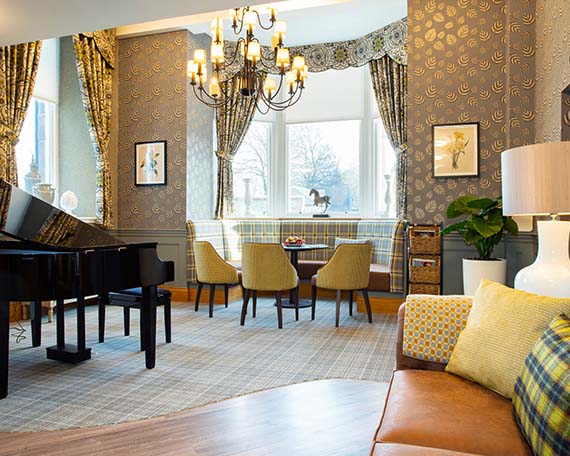

Residential Care at Trinity House Care Home in Edinburgh
Trinity House Care Home offers a warm and supportive environment where residents are treated with dignity, respect and kindness every single day. The team takes time to understand each individual, building relationships that feel genuine and meaningful.
Whether your loved one needs a little extra support with personal care, help with daily routines or simply a friendly and reassuring environment, Trinity House offers a home where older adults can live comfortably and confidently.
If you would like to learn more, arrange a visit or speak to a member of the team, the staff will be more than happy to help.
